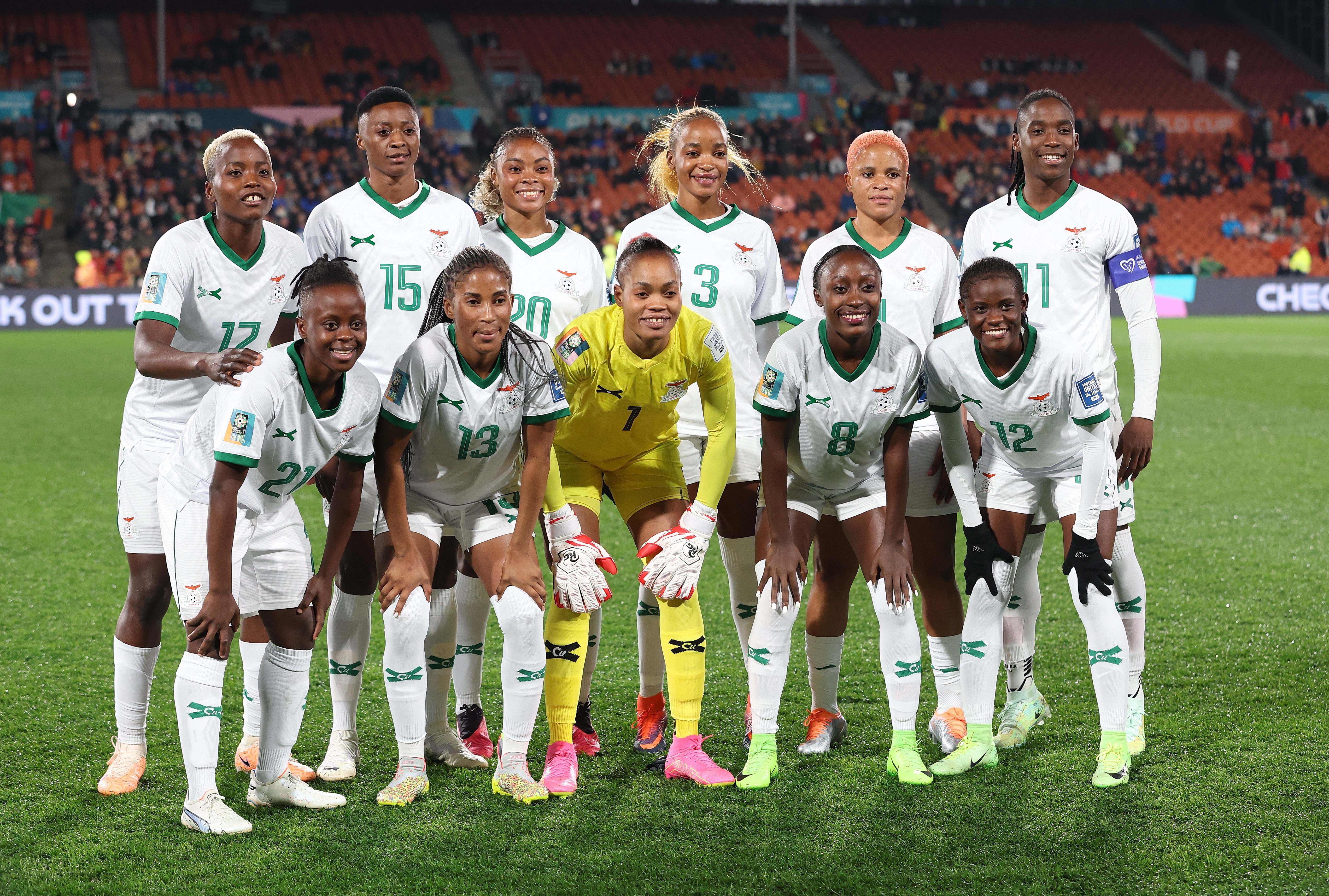[ad_1]

Zambia has qualified for its first-ever FIFA Women’s World Cup, taking place this year in New Zealand/Australia, becoming the first landlocked nation in Africa to qualify for a senior World Cup in either gender.
Previously, Zambia has come close to qualifying for the World Cup but narrowly missed the opportunity in 2014 and 2018.
The Copper Queens not only showed up with bold energy in New Zealand, but also displayed an impressive performance, making history in the process.
Zambia win in debut appearance
On Monday, Zambia won the World Cup match over Costa Rica for the first time with a 3-1 victory, leaving a historic imprint on the World Cup with the fastest goal and 1,000th goal at Waikato Stadium.
Lushomo Mweemba scored the North African country’s first World Cup goal after three minutes in their final group game against La Sele, while team captain Barbra Banda- who was not allowed to play for quite some time on gender eligibility grounds that she found difficult to comprehend- secured the 1,000th goal in World Cup history with a penalty kick in the 31st minute.
The debutants, who suffered 5-0 defeats in their first two matches, secured a third-place finish in Group C. Japan claimed the top spot with a 4-0 victory over Spain. Meanwhile, Costa Rica ended up at the bottom of the group, failing to earn a single point in their three matches.
And while Zambia is on a celebratory high right now, the Queens have not been having it easy.
Zambia Women’s football team unpaid for two years
According to sources, the majority of the Zambia squad participating in their country’s first appearance at the Women’s World Cup have not received any payment from their football federation since competing in the Tokyo Olympics nearly two years ago. These unpaid dues include earnings for matches and up to 100 days of training since returning from the Olympics in August 2021, which includes around 40 days during the Afcon in Morocco.
In response to the prolonged non-payment, Zambia’s players staged a protest by refusing to train for two days before their friendly match in Germany this month. Despite the financial hardships they faced, the team managed to secure a memorable late victory in Fürth with Banda’s winning goal scored in the 12th minute of injury time.
Upon arriving at their base camp in New Zealand for the World Cup, players have continued their silent protests, including traveling to training and games without singing, a tradition they typically follow. Furthermore, they have been compelled to sign a contentious code of conduct that sources close to the squad describe as imposing “unreasonable restrictions” while in camp.
Zambia’s president, Hakainde Hichilema, has assured that the issues concerning payment will be resolved. “Do your part, and your government will do its part,” Hichilema told the squad during a video call.
FIFA to pay every player at the Women’s World Cup?
Notably, Fifa announced last month that it would guarantee every player at the Women’s World Cup a minimum payment of $30,000 through their respective federations, a result of concerted efforts by over 150 national team players, backed by the players’ union Fifpro, and months of negotiations.
Zambia: fighting for equal pay
Through all this, Zambia is believed to be one of the few countries implementing equal pay for both female and male players. The Zambia Union of Footballers and Allied Workers Union is working closely with the Football Association of Zambia to ensure fair working conditions and contracts for female footballers and wants all players unionized.
Zambia’s coach accused of sexually abusing players
Additionally, the North African players have been dealing with more discomfort on the forefront as allegations of sexual misconduct have surfaced concerning their head coach, Bruce Mwape. Reports indicate that Mwape was investigated last year following allegations of sexual abuse within the team. Mwape, however, has denied these allegations, labeling them as false.
FIFA has been made aware of the accusations against Mwape and has been in contact with the Football Association of Zambia (FAZ) to conduct an investigation. For now, it seems the organization cannot comment on ongoing investigations.
It remains uncertain whether Zambia will promptly pay and compensate their hardworking team for their historic achievements or replace their head coach. Despite the uncertainty, the Copper Queens are determined to demonstrate to the world that they can deliver an exhilarating performance on the global stage with little external support.
[ad_2]
Source link
